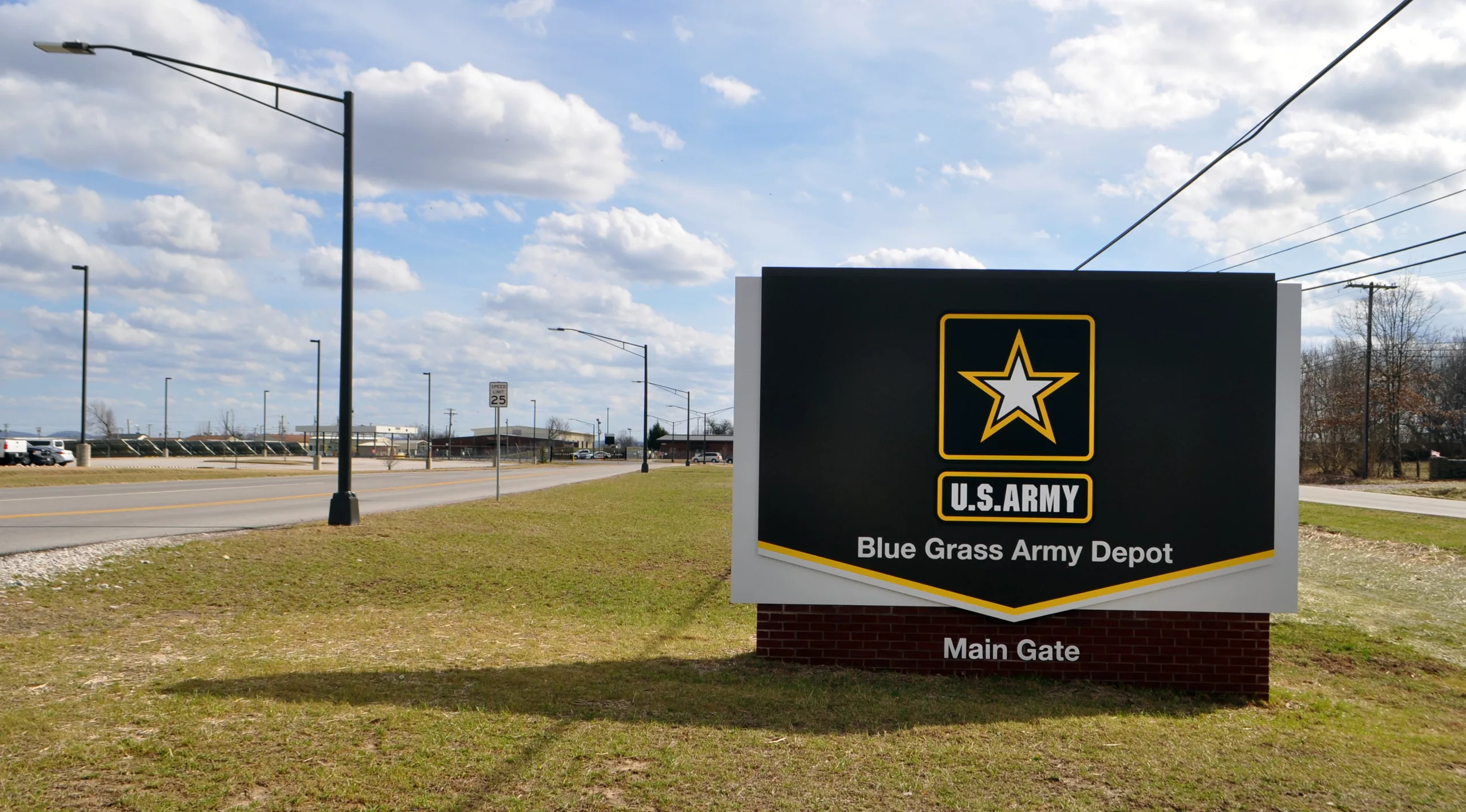Central Kentucky’s Triumph: Final U.S. chemical weapons destroyed at Blue Grass Army Depot

RICHMOND, Ky. — In a monumental feat for both Central Kentucky and the nation, the last of the United States’ once-massive stockpile of chemical weapons is set to be destroyed at the Blue Grass Army Depot near Richmond, Kentucky, the New York Times reports. The news comes as a great relief to the local community, which for years has been vocal in pushing for the safe elimination of these lethal munitions.
The United States has been methodically dismantling its chemical weapons cache, which included deadly substances such as mustard gas and nerve agents like Sarin. The long-awaited process is finally coming to a conclusion in the heart of the Bluegrass State.
The chemical weapons have been destroyed through a careful and systematic process. In the case of artillery shells filled with mustard agents, robotic arms pierced, drained, washed, and then baked each shell at 1,500 degrees Fahrenheit. The final products are inert scrap metals, no longer posing a threat to humanity.

“This is the first time, globally, that an entire class of weapons of mass destruction will be destroyed,” said Craig Williams, a Central Kentucky resident who has been a tireless advocate for the safe destruction of the chemical stockpile since 1984. Williams began his crusade when he found out that tons of chemical weapons were being stored just five miles from his home.
Locally, the process has been especially significant. The Blue Grass Army Depot, which sprawls over 15,000 acres, has been an integral part of the community. However, the storage of chemical munitions had long raised concerns among residents regarding safety and environmental impact.
For Central Kentucky, the journey to this moment has been tumultuous. When Williams, a Vietnam War veteran, discovered that nerve agents were slated to be incinerated at the Blue Grass Depot in 1984, he, alongside other concerned residents, organized opposition. The lack of clear answers regarding the environmental impact of incineration spurred their campaign.
The local community’s determined effort led to lobbying lawmakers and engaging experts to argue the environmental hazards of the Army’s proposed destruction method. This activism was instrumental in halting the plan, leading to the development of new techniques to destroy chemical weapons without burning them.

This triumph marks the end of an era in which the United States amassed a shocking scale of chemical weapons. These included artillery shells filled with blistering agents capable of enveloping whole forests and tanks full of poison that could be aerially sprayed on targets. The U.S. began to develop this arsenal after World War I, even though the use of such weapons was condemned internationally.
The significance of this achievement reverberates beyond Central Kentucky and has global ramifications. With the destruction of the final chemical munitions at the Blue Grass Army Depot, the world’s publicly declared stockpile of lethal chemical weapons will be eradicated.
“It’s a good piece of history to have behind us,” said Candace M. Coyle, the Army’s project manager for the Blue Grass Depot. “That’s the best part about it, is that it’s not going to harm anyone.”
Central Kentucky can take pride in the role it played in the historical and globally significant elimination of these deadly weapons. The tenacity and commitment of the local community exemplify the power of collective action in shaping a safer future for all.
Top photo: Blue Grass Army Depot entrance. (US Army photo)
Recommended Posts

Kamala Harris needs a VP candidate. Could a governor fit the bill?
Fri, July 26, 2024
After cyber-attack on Jefferson County Clerk, Fayette counterpart discusses precautions
Fri, July 26, 2024
An eastern Kentucky animal shelter is swelling this summer
Fri, July 26, 2024